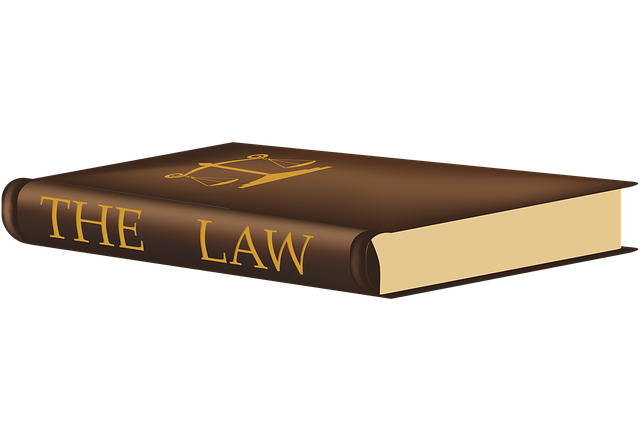Understanding Miranda Rights, established in 1966's Miranda v. Arizona, is crucial for criminal defense strategies as it safeguards suspects from self-incrimination per the Fifth Amendment. The Miranda Warning informs individuals of their right to remain silent and consult an attorney, preventing forced confessions and maintaining justice system integrity. While these rights are essential, they may not be sufficient; additional legal defenses and specialized knowledge in healthcare law are needed for fair trials, especially in complex cases. Skilled attorneys leverage expertise to secure not guilty verdicts by balancing patient rights and law enforcement interests, emphasizing the importance of comprehensive legal strategies in criminal proceedings.
In the intricate landscape of healthcare law, understanding Miranda Rights is paramount for criminal defense strategies. This article delves into the foundational role of Miranda Warnings, exploring their historical context and ongoing legal implications in criminal proceedings. We analyze scenarios where Miranda alone may not suffice, highlighting additional legal protections. Through compelling case studies, we navigate complex healthcare-related legal issues, providing insights into strategic navigation within the intricate web of criminal law. Discover how Miranda Rights serve as a cornerstone for defense strategies while acknowledging evolving legal interpretations.
- Understanding Miranda Rights: A Foundation for Criminal Defense
- The Evolution of Miranda Warnings: Historical Context and Legal Implications
- When Miranda is Not Enough: Exploring Other Legal Protections
- Case Studies: Navigating Complex Healthcare Legal Issues in Criminal Proceedings
Understanding Miranda Rights: A Foundation for Criminal Defense
Understanding Miranda Rights is a cornerstone for any general criminal defense strategy. This fundamental aspect of American law ensures that suspects are protected from self-incrimination during interrogation, as guaranteed by the Fifth Amendment of the U.S. Constitution. In essence, the Miranda Warning informs individuals that they have the right to remain silent and that anything they say can be used against them in a court of law. This warning is crucial for his clients facing criminal charges, as it provides a robust defense mechanism.
By knowing their rights, suspects can make informed decisions during questioning, preventing any unprecedented track record of forced confessions. The Miranda Rights in criminal proceedings play a pivotal role in maintaining the integrity of the justice system and ensuring that general criminal defense attorneys have the tools to advocate for their clients effectively.
The Evolution of Miranda Warnings: Historical Context and Legal Implications
The Miranda warning, a cornerstone of criminal justice, has evolved significantly since its inception in the landmark case Miranda v. Arizona (1966). This historical context is crucial to understanding its legal implications and ongoing relevance, particularly in all stages of the investigative and enforcement process across the country. Initially designed to protect an individual’s Fifth Amendment rights against self-incrimination, the warning has been refined over time to address concerns and ensure fairness.
Today, Miranda Rights in criminal proceedings serve as a vital safeguard for suspects, balancing the need for law enforcement to gather evidence with the respective business of ensuring due process. The warning informs individuals of their right to remain silent, their right to an attorney, and the potential consequences of waiving these rights. This simple yet powerful tool has revolutionized how police interact with suspects, fostering a more transparent and just system across the nation.
When Miranda is Not Enough: Exploring Other Legal Protections
In many criminal proceedings, law enforcement officers are required to inform suspects of their Miranda Rights—a fundamental practice to protect an individual’s constitutional rights against self-incrimination. However, there are instances where Miranda alone might not suffice in ensuring a fair trial. When facing severe legal repercussions or complex cases, understanding and leveraging other legal protections becomes paramount for general criminal defense strategies.
Beyond the well-known Miranda Rights in criminal proceedings, several additional safeguards exist to safeguard individuals from unfair treatment. Effective use of these defenses can significantly impact the outcome of a case, potentially avoiding indictment or securing winning challenging defense verdicts. These alternative measures encompass a range of legal principles designed to protect against coercion, ensure due process, and preserve individual liberties, thereby strengthening the overall criminal defense framework.
Case Studies: Navigating Complex Healthcare Legal Issues in Criminal Proceedings
In criminal proceedings, healthcare legal issues can be complex and multifaceted, especially when considering the delicate balance between patient rights and law enforcement interests. Case studies often highlight the intricate navigation required to ensure justice while protecting sensitive healthcare information. For instance, attorneys must strategize how to use the Miranda Rights in Criminal Proceedings effectively without compromising confidential medical records. This is particularly crucial in winning challenging defense verdicts, as seen across the country, where skilled legal professionals have secured not guilty rulings for clients facing serious charges by meticulously handling these complex issues.
These cases often revolve around scenarios such as police interrogations of patients in hospital settings or the use of medical evidence in court. The success of a defense strategy depends on a deep understanding of healthcare law and procedure, ensuring that constitutional rights are upheld while presenting a compelling case. This delicate approach has resulted in notable successes for his clients, demonstrating the importance of specialized legal expertise in navigating these complex healthcare legal issues within criminal cases.
In exploring healthcare legal issues, particularly focusing on Miranda Rights in criminal proceedings, it’s evident that while the foundational principles of Miranda Warnings have stood the test of time, they are not always sufficient. The evolution of legal protections highlights the need for a nuanced approach when navigating complex cases. Understanding both historical context and contemporary challenges is crucial for attorneys to provide robust defense strategies. As demonstrated through case studies, staying abreast of legal developments ensures effective representation in these intricate healthcare-related criminal matters.






